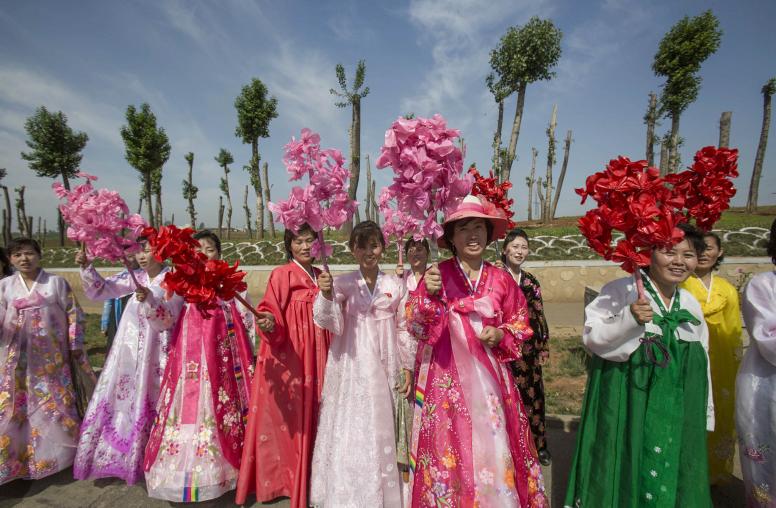North Korea’s almost daily delivery of threats against South Korea, Japan and the United States in the past week has eyes turning toward neighboring China for influence to defuse the tensions. Two USIP experts who are former U.S. arms control officials say statements and actions by the U.S. and its allies South Korea and Japan send signals to China just as much as to North Korea.

North Korea’s almost daily delivery of threats against South Korea, Japan and the United States in the past week has eyes turning toward neighboring China for influence to defuse the tensions. Two USIP experts who are former U.S. arms control officials say statements and actions by the U.S. and its allies South Korea and Japan send signals to China just as much as to North Korea.
North Korea in December successfully launched a missile and followed in February with its third atomic test. Last month, it declared void the 1953 armistice that ended the war with South Korea. In the past week, it has threatened nuclear and missile strikes on U.S. territory, cut off hotline communications with South Korea and declared it would restart its nuclear plant at Yongbyon, which was shut down in 2007 as part of an agreement that stemmed from talks with the U.S. and four other nations. The so-called “six-party talks” have since lapsed.
Mike Lekson, director of gaming in USIP’s Academy of International Conflict Management and Peacebuilding and a former deputy assistant secretary of state for arms control, said it’s the “most belligerent language” he remembers from any of the last three North Korean leaders.
“I don’t remember it being this bad back in the 1990s,” he said. The nuclear issues were a great concern at the time, but no one was seriously talking about the prospect of conflict breaking out again, Lekson said. Even the North Korean capture of the USS Pueblo, a Navy intelligence research ship, in 1968 didn’t augur such serious prospects that its leaders might take military action that would restart the Korean War, Lekson said.
The Obama administration has been reluctant to offer talks with North Korea out of concern it would simply reward belligerent actions. “I don’t see us or the South Koreans in the mood to give them something in this context,” Lekson said.
The U.S. has responded with measures such as plans to deploy additional missile defense interceptors on its West Coast and on Guam and by moving Navy destroyers off the Korean Peninsula.
While such steps are aimed at countering the North Korean threats, they also constitute the kind of action that China would want to forestall, said Bruce MacDonald, USIP’s senior director for nonproliferation and arms control who helped negotiate the U.S.-Russia Strategic Arms Reduction Treaty that was signed in 1991. MacDonald spent time in Beijing in January and February.
“What China is facing now – and you’re starting to see some discussion of this among some Chinese intellectuals – is that China may have miscalculated,” MacDonald said. “Their assumption was let’s keep on kicking the can down the road and prop up North Korea.”
U.S. officials shifted from more subtle hints for Chinese intervention to direct public statements this week, as the Pentagon revealed that Secretary of Defense Chuck Hagel spoke by phone with Chinese Minister of National Defense General Chang Wanquan on April 1 to congratulate him on his new position.
"The secretary emphasized the growing threat to the U.S. and our allies posed by North Korea's aggressive pursuit of nuclear weapons and ballistic missile programs,” Pentagon Press Secretary George Little said. Hagel “expressed to General Chang the importance of sustained U.S.-China dialogue and cooperation on these issues,” Little said in a statement.
In a speech on U.S. defense budget and strategy priorities at the National Defense University today, Hagel said North Korea’s threats pose a “real and clear danger.”
Still, China may not have good options that would produce the results the U.S. and its allies are looking for, Lekson said.
“I don’t know that they have the ability to compel or even induce or persuade the North Koreans to take what we would consider positive steps,” Lekson said.
Explore Further
- Negotiating on the Edge
Book by Scott Snyder



